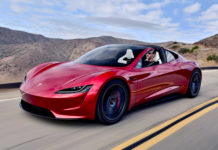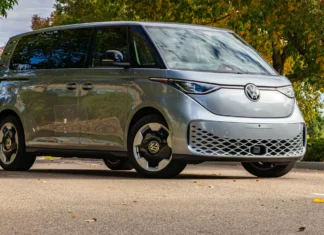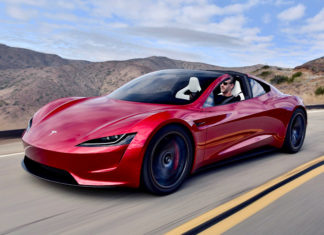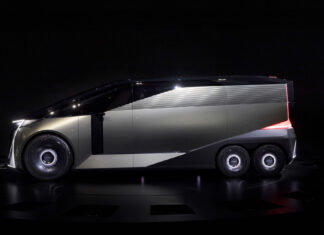AI continues to headline automotive innovations, particularly with Volkswagen’s presence at CES 2024.
It may be cliche to say we’ve come a long way from the early period of “voice recognition” in which your car could only understand a few short, stilted commands. It’s true nonetheless, and it’s a reminder that comes into sharp focus at this year’s CES, where Volkswagen just announced the integration of ChatGPT — an artificial intelligence chatbot — into several of the latest models across its lineup. The “uniquely intelligent, automotive-grade” iteration of ChatGPT will make its way into European examples of the brand’s “ID.” electric series (ID.3, ID.4, ID.5 and ID.7), the new Tiguan, the new Mark 8.5 Golf (shown here) and the new Passat in the second quarter of this year.
As of this moment, VW says it is “considering” the feature for the United States market.
The integration comes as a result of Volkswagen’s partnership with Cerence, a company that develops voice assistant technologies specifically for the automotive industry. The automaker debuted a new voice assistant named “Ida” last year, and intends to further build out its relatively basic instruction set, controlling in-cabin functions like climate and media controls, with the “constantly growing artificial intelligence database” through embedding ChatGPT into Cerence’s Chat Pro software throughout VW’s most popular vehicles.



In its announcement, Volkswagen stressed the ChatGPT integration will not change anything for the driver behind the wheel. There’s no need to create a new account, install a new app or activate the AI chatbot functionality, the company says. Instead, the eventual software update that will be available with the latest Chat Pro software will bake in the ChatGPT functionality into the updated Ida chat assistant. Drivers can still use the “Hello Ida” or press a button on the steering wheel to activate the voice assistant, and if the VW system can’t figure out how to handle a command, it will anonymously forward that interaction to the AI chatbot, with the VW voice ultimately responding to the driver’s input.
Again, according to Volkswagen’s announcement, “ChatGPT does not gain access to vehicle information; questions and answers are deleted immediately to ensure the highest level of data protection.” That said, it’s unclear in the information Volkswagen provided in the statement whether drivers could somehow opt out of the voice assistant forwarding questions to ChatGPT for analysis. Since it’s not U.S.-bound yet, we don’t have a firm answer on how well the AI-supported system works and whether VW/Cerence addresses the real security and privacy concerns to the everyday user’s satisfaction yet. We’ll have to see how it rolls out in other countries over the coming months, and hopefully we’ll get more practical hands-on experience soon.
























